In an earlier version of Kaendor, I was experimenting with an idea that fire is a demonic energy that rises up from the Underworld, and that all undead are monsters of fire and ash. It was one of those ideas that seemed really cool at the time, but couldn’t really get a firm foothold in my own mental image of the world. I was originally inspired by Dark Souls III, where supernatural fire and ash are at the center of the story and the whole cosmology. When I resumed playing Elden Ring this weekend and I was reminded again of the Frenzied Flame by an NPC dialog, I immediately knew I had to pick that tread up rekindle that flame again.
 Fire is of course dangerous with the potential to destroy and hurt. But it is also incredible useful and key to all human tools beyond sharp rock, pointy stick, and rope. Fire has rightfully been recognized by ancient myths as the basis of technology and civilization, despite its power to destroy everything people have and take their lives in the most gruesome way possible.
Fire is of course dangerous with the potential to destroy and hurt. But it is also incredible useful and key to all human tools beyond sharp rock, pointy stick, and rope. Fire has rightfully been recognized by ancient myths as the basis of technology and civilization, despite its power to destroy everything people have and take their lives in the most gruesome way possible.
In the mythology of Kaendor, fire was brought to a world of darkness and water in the Era of the Primordials, when they angered the demons whose flames turned the world to ashes. After their rage has subsided and the demons left the world, one last glowing coal was found by the Moon, who breathed its fire back to life and created the Sun, to cast away the darkness of the Void. The other planets saw the new light that she had created and made the surviving primordials flee into the darkest depths of the sea. And they also gathered around the Sun to find protection in its light and warmth. The role of fire in the mythology of Kaendor is an ambiguous one. It was brought to the world by demons as a force of destruction, but it also is a necessity for all mortal life that followed. Unlike the Moon, the Sun is not a god. It simply is a vast fire that casts back the darkness and creates the space in which the natural world can exist.
Magic is a force that has the reality to alter the world in ways that go around the laws of nature. It can do and create things that are not naturally possible. But the natural laws are far too complex for any mortal mind to fully comprehend. And time magic is unleashed upon the world, its full effects are unpredictable. Even when the effects appear clear and not causing any immediate harm, magic can still cause countless of very minor and completely invisible changes to anything it touches. Ever so slightly, it can disrupt the internal complexities of any living things. And even if no effect is immediately noticeable, repeated and continuous exposure to magic will gnaw and tear at what makes a living thing function until it becomes sickly and twisted by magic’s corruption. The common spells taught by priests and shamans to their apprentices have been refined for many generations and are the product of centuries of careful work to reduce any unintentional side effects and make them safe and predictable. As such, they are an incredibly powerful tool to do good and make civilization possible. But many sorcerers, ambitious and always searching for greater power, experiment with new spells of their own creation and are reckless in their use without restrained or caution. They often allow magic to spread unnoticed beyond the intended effects of the spell, causing the spread of corruption.
In the world of demons, magic flows freely everywhere. It is part of the nature of the demonic realm. And as such, demons have no restrained in using magical powers and are unaffected by corruption.
Fire and Magic mirror each other in many ways. They have the power to transform and create miraculous things but also the ability to cause terrible devastation. They are very safe to use when used with caution and restrained, but will quickly escape control when wielded recklessly. And then they will continue to spread, consuming those who thought to control them and everything around them. They destroy life, ultimately leaving behind nothing but ash.
What really is the difference between fire and magic? Perhaps, fire is simply one of the most basic manifestations of magic? One that can be used by anyone?

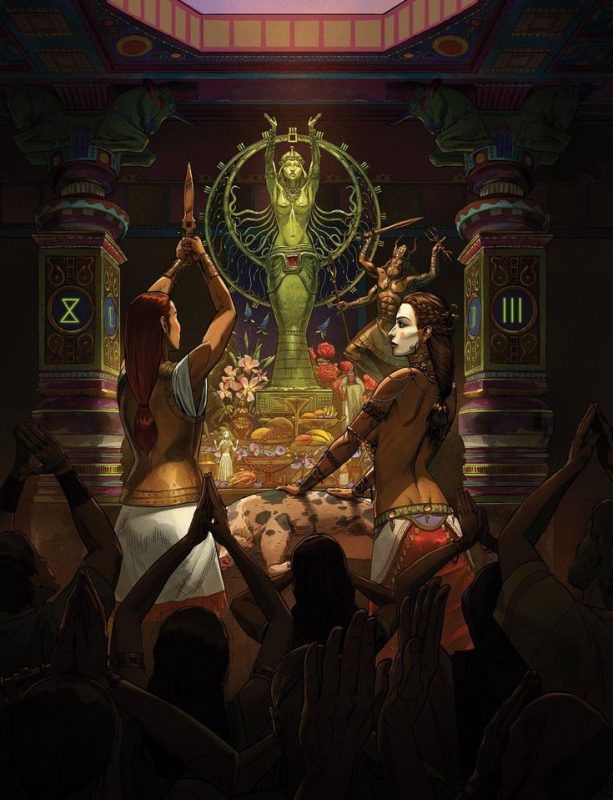 Priests, and their acolyte assistants, are servants of the gods who maintain their temple, teach their followers, and perform the many rites to communicate between the gods and their worshippers. Priests do not have any magical abilities or special powers that make them different from other people. They perform rituals to plead the gods of their cult for guidance and help and protection for their villages and towns. The gods will react to these pleas in whatever way they deem appropriate, or they may not, and they do not speak their will to their priests directly. Sometimes priests receive visions that they attribute to their gods, but these are always vague and require a great deal of interpretation.
Priests, and their acolyte assistants, are servants of the gods who maintain their temple, teach their followers, and perform the many rites to communicate between the gods and their worshippers. Priests do not have any magical abilities or special powers that make them different from other people. They perform rituals to plead the gods of their cult for guidance and help and protection for their villages and towns. The gods will react to these pleas in whatever way they deem appropriate, or they may not, and they do not speak their will to their priests directly. Sometimes priests receive visions that they attribute to their gods, but these are always vague and require a great deal of interpretation.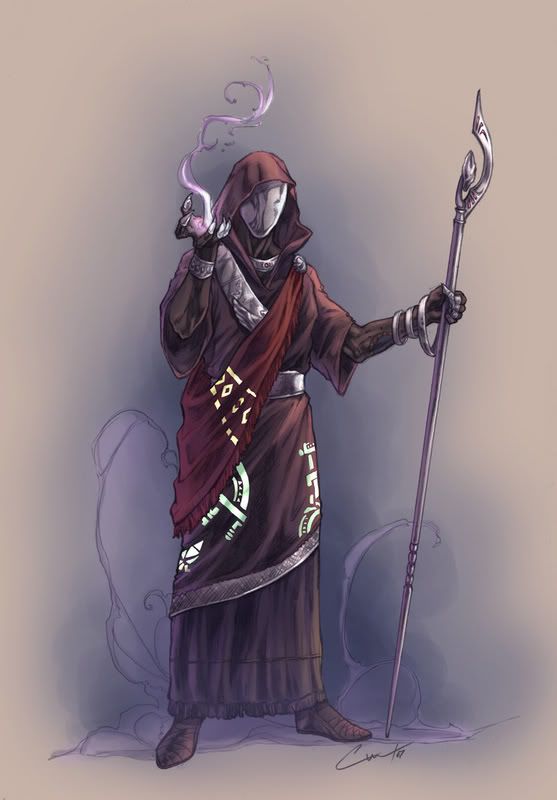 In contrast to that, mystics are rare and special holy men and women who have reached a form of enlightenment that has revealed to them a deep comprehension of the Divine Source and its presence and working within all things. This understanding and awareness allows them to practice a rare form of magic that draws directly on the Divine itself and grants powers that have always been impossible to achieve for even the most powerful sorcerers. Most mystics have been devout worshippers of various gods before their enlightenment, and remain faithful to the teachings and valuesf their cults. However, they have a much deeper awareness that all the gods are still only different reflections of a much greater divine truth, and the distinctions between specific gods are typically much less important to them than to the priests of the many different temples. Many mystics regard the gods and their myth as powerful symbols and examples for living in harmony with the Divine that unites all things, and so large numbers of them continue to wear the robes and symbols of their cults and spread their teachings. But mystics are typically seen as somewhat removed from the temples by priests and sometimes even outright heretical, so they rarely have close associations with major powerful temples of the greater cities. They are however typically held in high regard by common people, especially in more remote areas where people are used to numerous small temples practicing somewhat different rites in every village with no central authorities on religious matters. Mystics are much more rare than priests and many people never are wittness to their miracle powers in their whole life.
In contrast to that, mystics are rare and special holy men and women who have reached a form of enlightenment that has revealed to them a deep comprehension of the Divine Source and its presence and working within all things. This understanding and awareness allows them to practice a rare form of magic that draws directly on the Divine itself and grants powers that have always been impossible to achieve for even the most powerful sorcerers. Most mystics have been devout worshippers of various gods before their enlightenment, and remain faithful to the teachings and valuesf their cults. However, they have a much deeper awareness that all the gods are still only different reflections of a much greater divine truth, and the distinctions between specific gods are typically much less important to them than to the priests of the many different temples. Many mystics regard the gods and their myth as powerful symbols and examples for living in harmony with the Divine that unites all things, and so large numbers of them continue to wear the robes and symbols of their cults and spread their teachings. But mystics are typically seen as somewhat removed from the temples by priests and sometimes even outright heretical, so they rarely have close associations with major powerful temples of the greater cities. They are however typically held in high regard by common people, especially in more remote areas where people are used to numerous small temples practicing somewhat different rites in every village with no central authorities on religious matters. Mystics are much more rare than priests and many people never are wittness to their miracle powers in their whole life.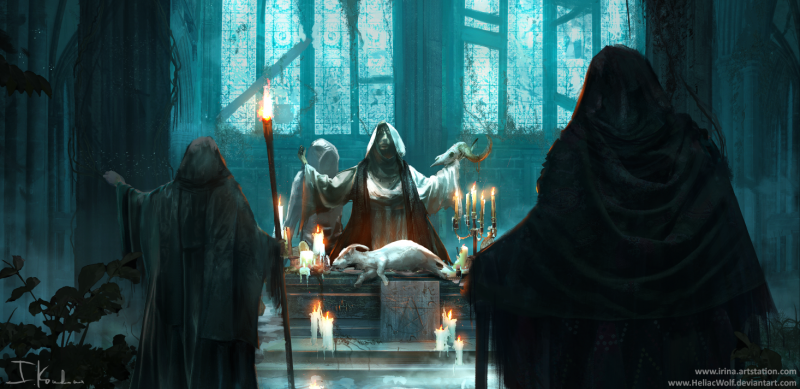 Deities
Deities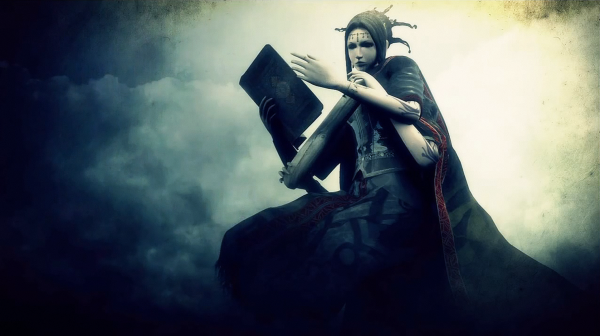 Demons
Demons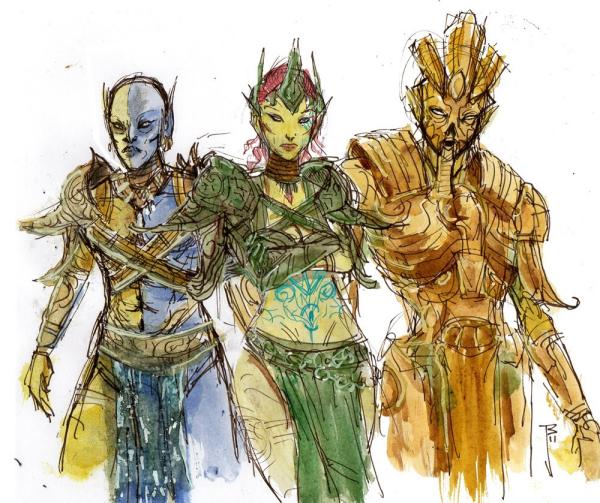 God-Kings
God-Kings Cultural Traditions
Cultural Traditions